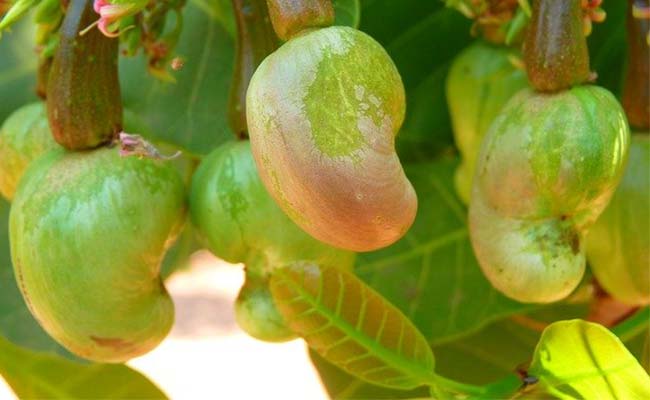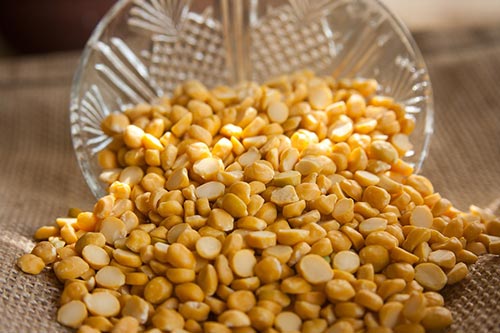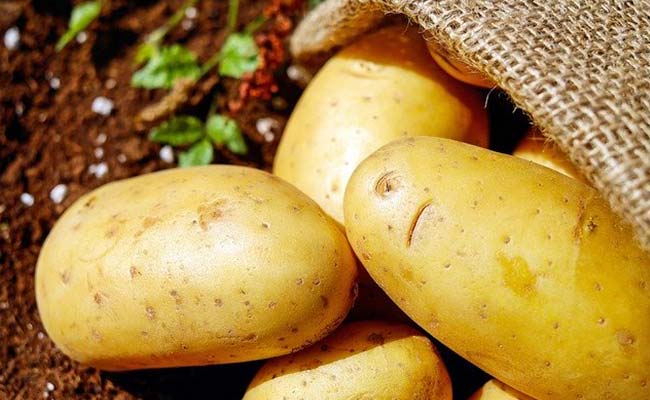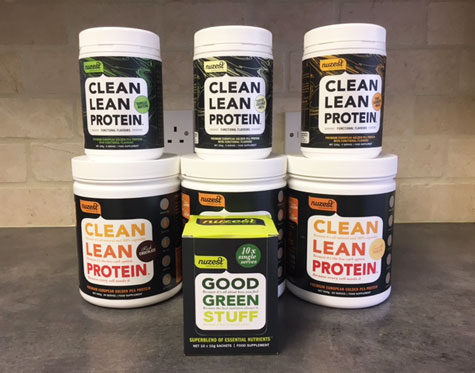Next to iron, zinc is the second most abundant trace mineral in your body.
This vital mineral is required for different bodily processes such as DNA and protein synthesis and growth and development.
It also aids in immune and metabolic functions and is essential in wound healing.
As an essential nutrient, zinc is not naturally produced or stored by your body. This means you need to consume a varied diet to get your daily supply of this nutrient.
While chicken, liver, and red meat are generally cited as good sources of zinc, you can obtain the zinc you need by eating a well-balanced plant-based-vegan diet.
Content:
Zinc RDA
The recommended daily allowance of zinc is 9.5mg for adult men and 7mg for adult women.
The intake difference between genders is based on the theory that loss of zinc is greater in men. Zinc loss happens via the hair, skin, and semen.
20 Best Vegan Zinc Sources
Oatmeal
Oatmeal makes for a good start to the day. It is an excellent source of nutrients, fibre, and antioxidants. It also supplies a solid amount of zinc, providing 2.3mg per 1 cup of cooked oatmeal.
Tofu
Bean curd or tofu – which is solidified condensed soy milk – is a nutrient powerhouse.
Containing all nine essential amino acids, tofu is a great source of protein and is a vital plant source of calcium, iron, manganese, and phosphorus.
Additionally, a half-cup of firm tofu provides 2mg of zinc.
Cashew Nuts
Rich in several nutrients, cashews are a favorite among healthy eaters. Cashews are protein dense and provide us with heart-friendly fatty acids and antioxidants.
Cashew nuts are also a good source of iron, magnesium, and zinc. In fact, just ¼ cup of roasted cashews will provide you with 1.9mg of zinc.
Sunflower Seeds
Technically the fruits of the sunflower, sunflower seeds are tiny yet packed with nutrients.
Sunflower seeds are rich in vitamin E, magnesium, and protein and, one-fourth cup of roasted sunflower seeds contains 1.7mg of zinc.
Garbanzo beans
Also known as chickpeas, garbanzo beans belong to the legume family.
Garbanzo beans are usually beige in color and have a nut-like taste and buttery texture.
They are high in protein and fibre, making them a good choice for those who want to lose weight. Chickpeas also contain folate, iron, phosphorus, and copper.
They also provide zinc: half a cup of boiled garbanzo beans contains 1.3mg.
Lentils
A cousin of the chickpea, lentils are another edible legume that can help you meet your daily zinc requirement.
Lentils are highly nutritious, containing protein, minerals, and fibre. And among all plant-based foods, they contain the highest amount of folate!
Lentils also contain a decent amount of zinc, providing 1.3mg per half cup of boiled lentils.
Peanuts
Peanuts are related to beans and lentils. As a legume, they are a good source of healthy fats, protein, fibre, and antioxidants. The fats in peanuts help lower bad cholesterol.
Peanuts also supply B vitamins, potassium, phosphorus, and magnesium. Furthermore, ¼ cup of raw peanuts provides 1.2mg of zinc.
Almonds
Almonds are a great source of protein, fibre, vitamins, and minerals. In fact, just a handful of these nutrient-packed seeds can supply 1/8 of your daily protein needs.
And if you are looking to up your zinc levels, ¼ cup of whole almonds provides 1.1mg of zinc.
Pecans
Nut or drupe? It doesn't really matter. Because either way, pecans are a nutrient powerhouse.
An excellent source of vitamins, minerals, and antioxidants, pecans contain potassium, calcium, iron, zinc, magnesium, and monounsaturated fats.
As for your zinc needs, ¼ cup of halved pecans gives you 1.1mg of zinc.
Tempeh
An Indonesian fermented soy product, tempeh is often preferred over tofu as a substitute for meat, not only due to its fuller taste but also because tempeh is less processed and is, therefore, a healthier option.
Tempeh provides a substantial amount of healthy fats and is packed with protein, vitamins, and minerals, including zinc. A half-cup of raw tempeh contains 1mg of zinc.
Kidney beans
In case you are wondering from where it derives its name, the kidney bean resembles the shape and color of its namesake organ.
Kidney beans are high in protein and a great source of different vitamins and minerals, including iron, folate, manganese, copper, and potassium.
They also contain zinc, with ½ cup in boiled form providing 1mg of this essential mineral.
Peas
The seeds of a pod, peas contain a solid amount of fibre and antioxidants.
Like potatoes, peas are starchy vegetables because of their high starch content, but they are low in calories.
Peas contain significant amounts of vitamins A, K, and C and the minerals iron, folate, phosphorus, manganese, and zinc. One-half cup of boiled peas can provide 1mg of zinc.
Chia seeds
Chia seeds are black edible seeds that come from a flowering plant called Salvia hispanica.
Although tiny, chia seeds are packed with protein, fibre, omega-3 fatty acids, and antioxidants.
They are also great sources of minerals, including iron and calcium, and contain a fair amount of zinc, providing 1mg of zinc for every ounce of dried chia seeds.
Walnuts
Walnuts are considered a super-food because of their nutrient content and many benefits. They are rich in antioxidants, promote a healthy gut, aid in weight loss, and may help lower blood pressure and decrease inflammation.
They are also a good option for a snack if you are trying to increase your zinc intake, as ¼ cup of chopped walnuts provides 0.9m of zinc.
Peanut butter
Just as peanuts are one of the best plant sources of zinc, so is peanut butter!
Whether you eat it as is or spread it on a sandwich, two tablespoons of peanut butter provides 0.9mg of zinc.
Additionally, pure peanut butter is rich in healthy fats.
Corn
Corn is an excellent source of folic acid and iron and therefore helps in minimizing the risk of anemia. It is also rich in vitamin C that promotes healthy skin, as well as fibre, folate, and thiamine.
Corn also contains zinc, with 1 cup of boiled yellow corn providing 0.9mg of this essential mineral.
Pinto beans
Another variety of common beans that will help increase your zinc intake is pinto beans. One-half cup of these boiled beans will give you 0.8mg of zinc.
Like its sister, the kidney bean, the pinto is highly nutritious and packed with protein, fibre, vitamins, and minerals.
Pinto beans contribute to a healthy heart, improve your blood sugar, and minimize your risk of chronic disease.
Pistachios
Belonging to the cashew family, pistachios are not only popular for their delicious taste but also for their nutritional content and health benefits.
Pistachios boast of high protein and fibre content, and they are also a great source of antioxidants and other nutrients such as vitamin B6 and thiamine.
They aid in weight loss, may lower your cholesterol levels, and enhance the condition of your gut.
Eating ¼ cup of pistachios provides 0.7mg of zinc.
Miso
Originating from Japan, miso is a traditional condiment made from fermented soybeans, salt, and the mold koji.
Miso contains a significant amount of nutrients, including protein, vitamin K, sodium, manganese, copper, and zinc. Adding a tablespoon of miso to your dish provides 0.4mg of zinc.
Broccoli
One-half cup of boiled broccoli contains 0.4mg of zinc. As a super-food, broccoli is rich in vitamin C, beta-carotene, vitamins B1, B2, B3, and B6, iron, and potassium. What more, it is very low in calories, too!
Zinc Absorption
Zinc is easily absorbed by the body and as shown above found in many plant-based foods.
Historically there was a nutritional theory that Phytate, or phytic acid, in plant-based foods inhibited zinc absorption and the absorption of other minerals.
However, recent studies have shown this not to be true (1).
The so-called “anti-nutrient” effect occurs only when large amounts of phytates are consumed with a diet that is poor in nutrition.
Phytate, or phytic acid, is a naturally occurring compound found in all plant foods like beans, grains, nuts, and seeds.
Another analysis showed that vegans on the whole have only a little lower serum zinc level than non-vegans (2).
Additionally, a noteworthy study found that vegetarians seem to adapt to lower zinc intakes through improved absorption and retention (3).
If vegans have lower zinc serum levels it is likely not because of absorption but because of a low intake. Indeed, you should eat a variety of the foods listed above to ensure you meet your daily zinc requirement.
If you have a poor diet then your zinc absorption is negatively impacted.
To enhance zinc absorption, take in protein-rich food along with your zinc supplement. Legumes and nuts, which are high in both zinc and protein, are also excellent choices (4).
Note that iron and calcium supplementation may significantly inhibit the activity of zinc-containing enzymes in the serum as well as liver (5).
Risk of Zinc Deficiency
Zinc is probably one of the most overlooked micronutrients, and generally the only time we think about consuming sufficient zinc-rich food or taking supplements is when we are sick or during pregnancy.
However, although very rare, zinc deficiency can still occur.
People at risk of having zinc deficiency include those who do not have sufficient dietary intake, those who have absorption issues, pregnant or breastfeeding women, and people with alcoholism, among others.
Very low amounts of zinc in your body could lead to the following symptoms:
- Being more prone to common colds, flu, and other infections
- Skin rashes
- Hormonal imbalances
- Severe acne
- Impaired wound healing
- Poor growth and development
- Delayed sexual maturity
- Behavioral issues (6)
Mild zinc deficiency symptoms include decreased immunity to infection, hair loss, dry skin and acne, problem in wound healing, diarrhea, and loss of appetite (7).
Children that do not have proper and balanced diets, such as those living in developing countries, commonly suffer from zinc deficiency.
As zinc plays a role in our immunity, low amounts in the body make one susceptible to infection – thus the reason that 450,000 deaths of children under five (per year) are linked to zinc deficiency (8).
Zinc Supplementation
If you are worried about not getting enough zinc from your diet, you might choose to supplement to meet your average daily intake.
There are many different types of zinc supplements. The most common include:
- Zinc gluconate: this type is generally absorbed well by the body and is usually the best option as it contains the lowest cadmium (9).
- Zinc citrate: this type is generally absorbed well by the body.
- Zinc picolinate: this type is also absorbed well by the body.
- Zinc oxide: this type is not absorbed well by some people (10).
A supplement that provides up to 100% of the RDA is generally safe for those showing signs and symptoms of zinc deficiency.
In Summary
Zinc is an essential mineral that cannot be made by and stored in the body, so obtaining it from the food you eat or supplementation is essential.
While high amounts of zinc are commonly found in meat and other animal products, a well-planned diet from plant-based-vegan diet can successfully provide sufficient amounts of the mineral.
Phytates, which are found in plant foods do not inhibit absorption as previously thought, though if you are concerned about this you can heat, ferment, or soak your foods to lessen the phytate content.
Despite the noted differences in zinc intakes of vegetarians and vegans and non-vegetarians, several studies show that the former has no greater risk of zinc deficiency than the latter.





Leave a Reply